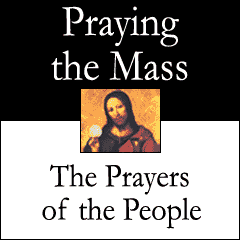I read just today this in Translating tradition: a chant historian reads Liturgiam authenticam by Peter Jeffery:
“…the CDW has already authorized a change in another anicent creed.
This change was made in the wording of the so-called Apostles’ Creed. Since it emerged in the context of the Roman baptismal rite and has no exact Eastern counterpart, the Apostles’ Creed is unarguably a core text of the Roman liturgical tradition. For centuries it has begun Credo in Deum, “I believe in God,” a reading preserved even after Vatican II in the Missal of Paul VI, the Rite of Christain initiation, and the Catechism of the Catholic Church. Yet in the new Missale Romanum of 2002 we find it beginning Credo in unum Deum, “I believe in one God” – a variant with far less historical precedent in the Apostles’ Creed than “Credimus” has in the Nicene Creed. Unless the CDW identifies this as an error and issues a correctin, then, translators will find themselves in an absurd position: We may not use the plural “We believe” opening, despite all its conciliar and liturgical precedent in East and West, becaue LA [Liturgiam Authenticam] asserts that doing so would violate the Latin liturgical tradition. But we must tranlsate the Apostles’ Creed with “I believe in one God” because…well, because the authorites have seen fit to alter the ancient text, in opposition to Roman tradition.”
Jeffery’s book suffers from the fact that it was published before the new translations became available – most of his criticisms of Liturgiam Authenticam are in fact shown to be baseless in the final product. And this is surely one of them. The new translation of the the Apostles’ Creed in the Missal (which is indeed an innovation in the Missale Romanum of 2002 by its very inclusion in the Mass) does NOT have “I believe in one God” but “I believe in God”, just like the Catechism and the Rite of Christian Initiation and Paul VI’s Missal and all the rest.
So, can someone tell me: Does the Missale Romanum of 2002 have “Credo in UNUM Deum” as the first line of the Apostles’ Creed? Or was this an error that was indeed corrected in the most recent reprinting of this Missal?
Update: There is an online copy of Missale Romanum 2002 on the Clerus website of the Congregation of the Clergy at http://www.clerus.org/bibliaclerusonline/en/st.htm. The Order of Mass begins at page 503. Also, you can download a full copy in Word format from this link on Rapidshare. Both online versions definitely have “Credo in unum Deum” for the Apostles’ Creed.
Update again: It appears that “Credo in unum Deum” for the Apostles’ Creed was definitely a misprint, not included in the 2008 reprint of the Editio Typica Tertia. See here: http://www.geocities.com/ajv13s/changes2008-9.doc. HT to Joshua for the links.

 (He looks a “let’s do it” kinda guy, doesn’t he?)
(He looks a “let’s do it” kinda guy, doesn’t he?)





